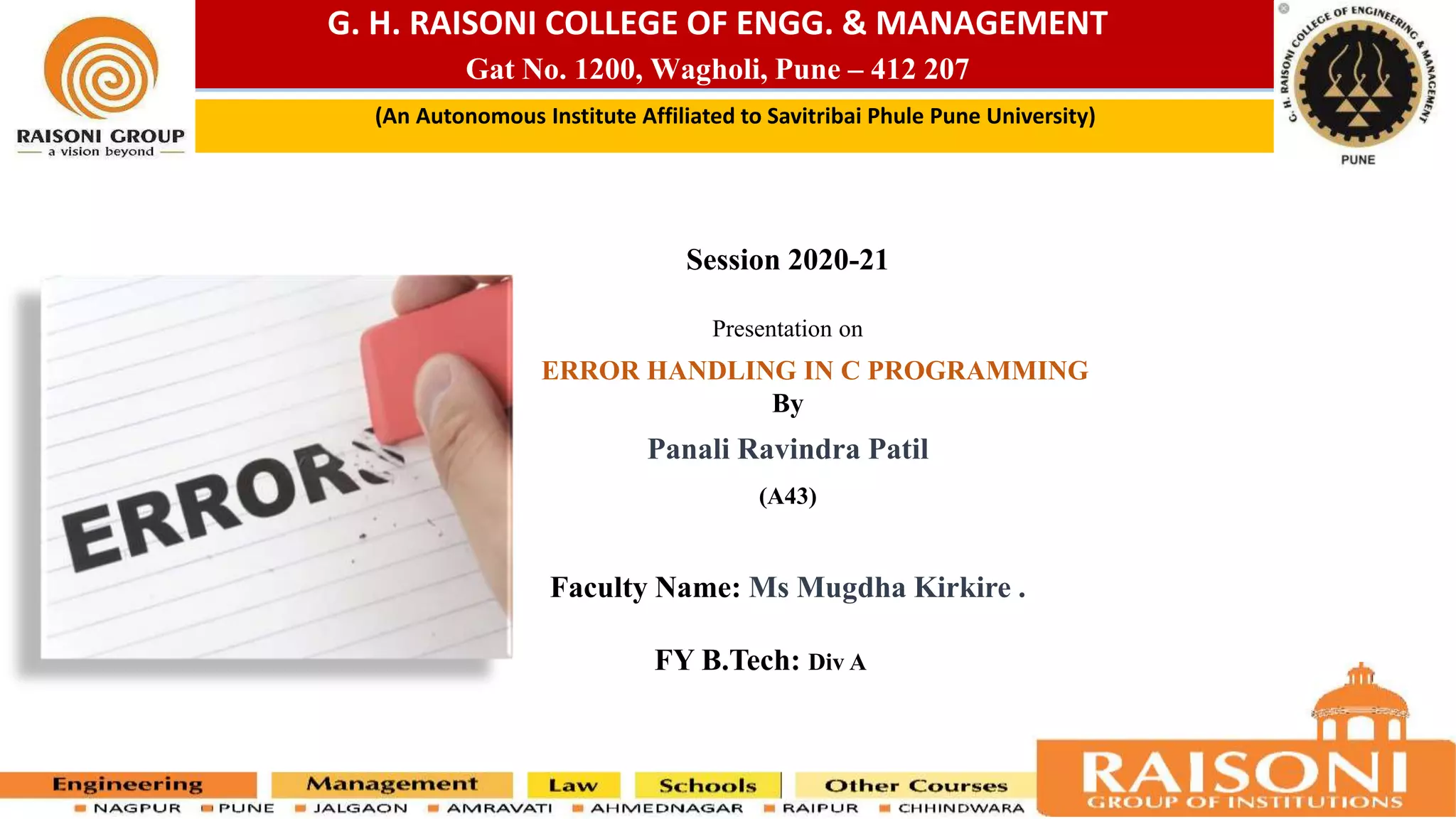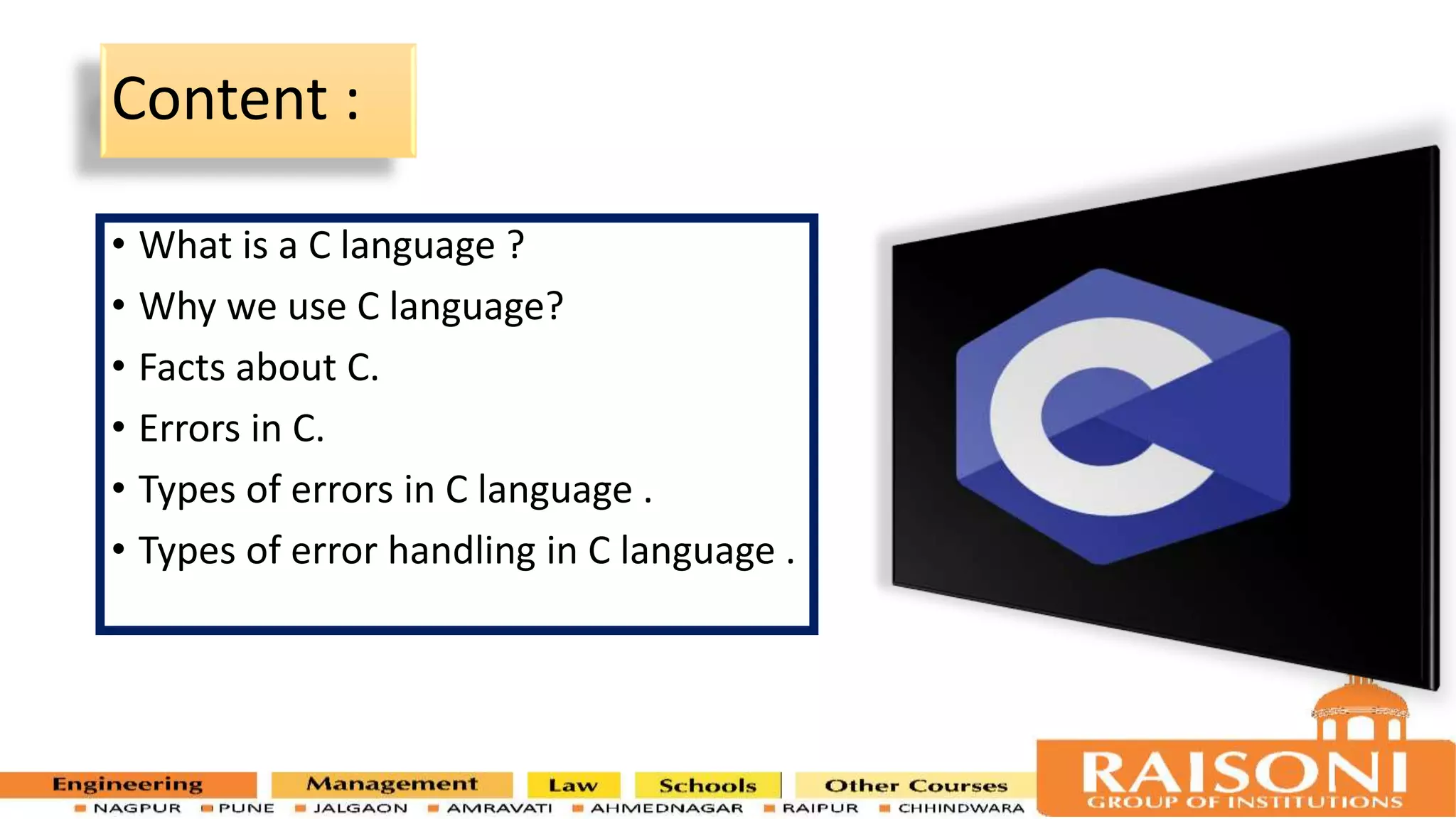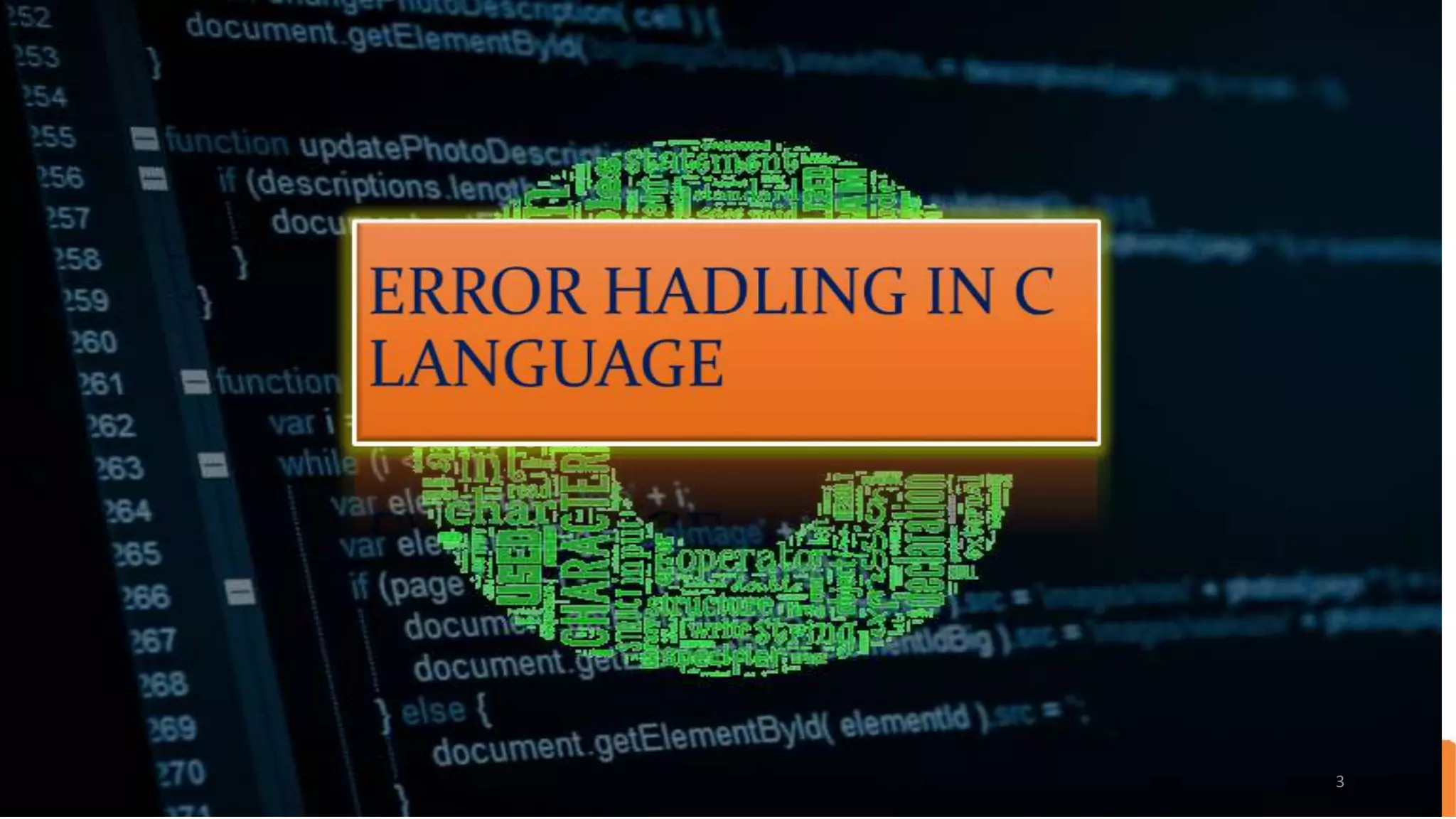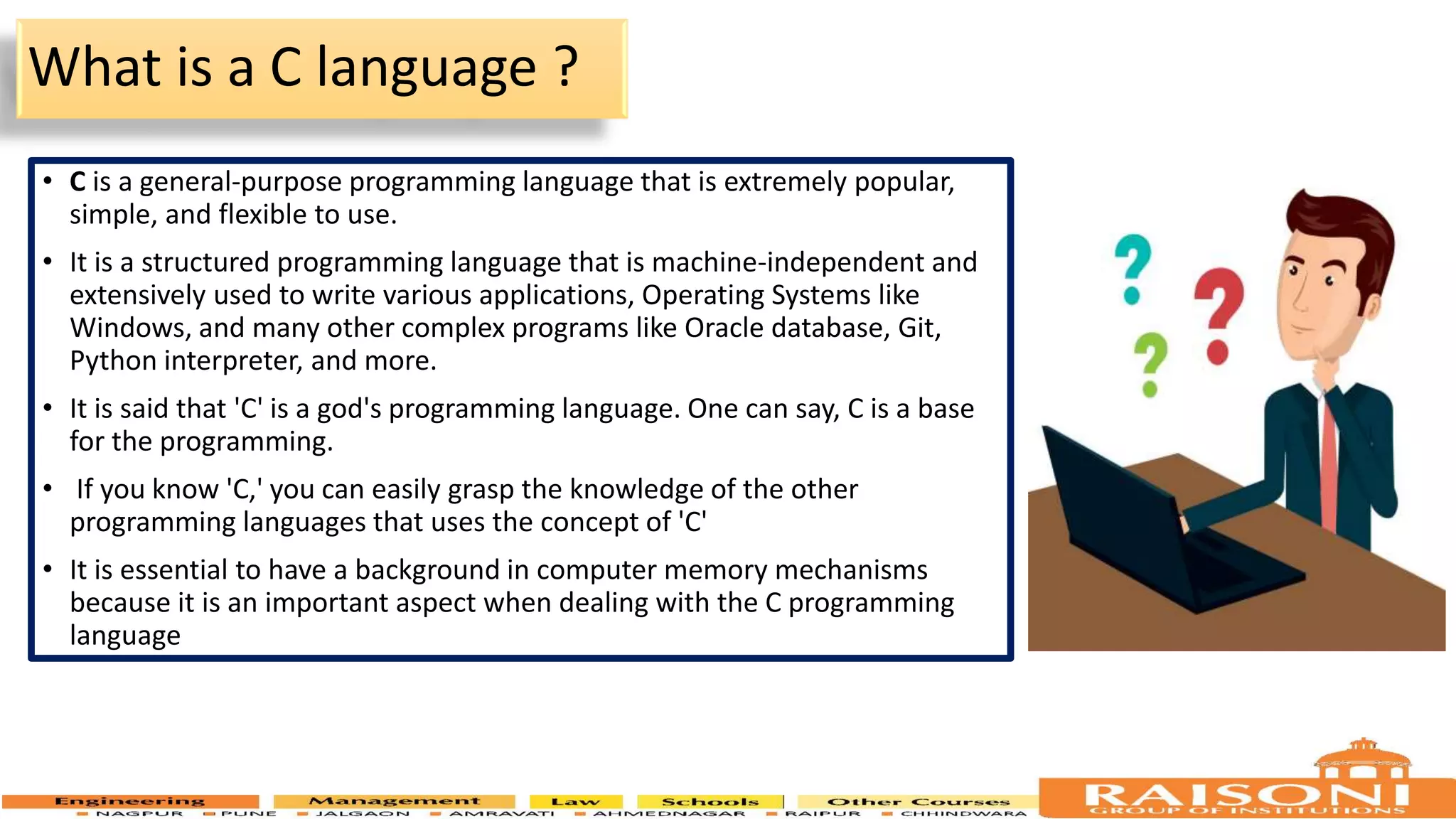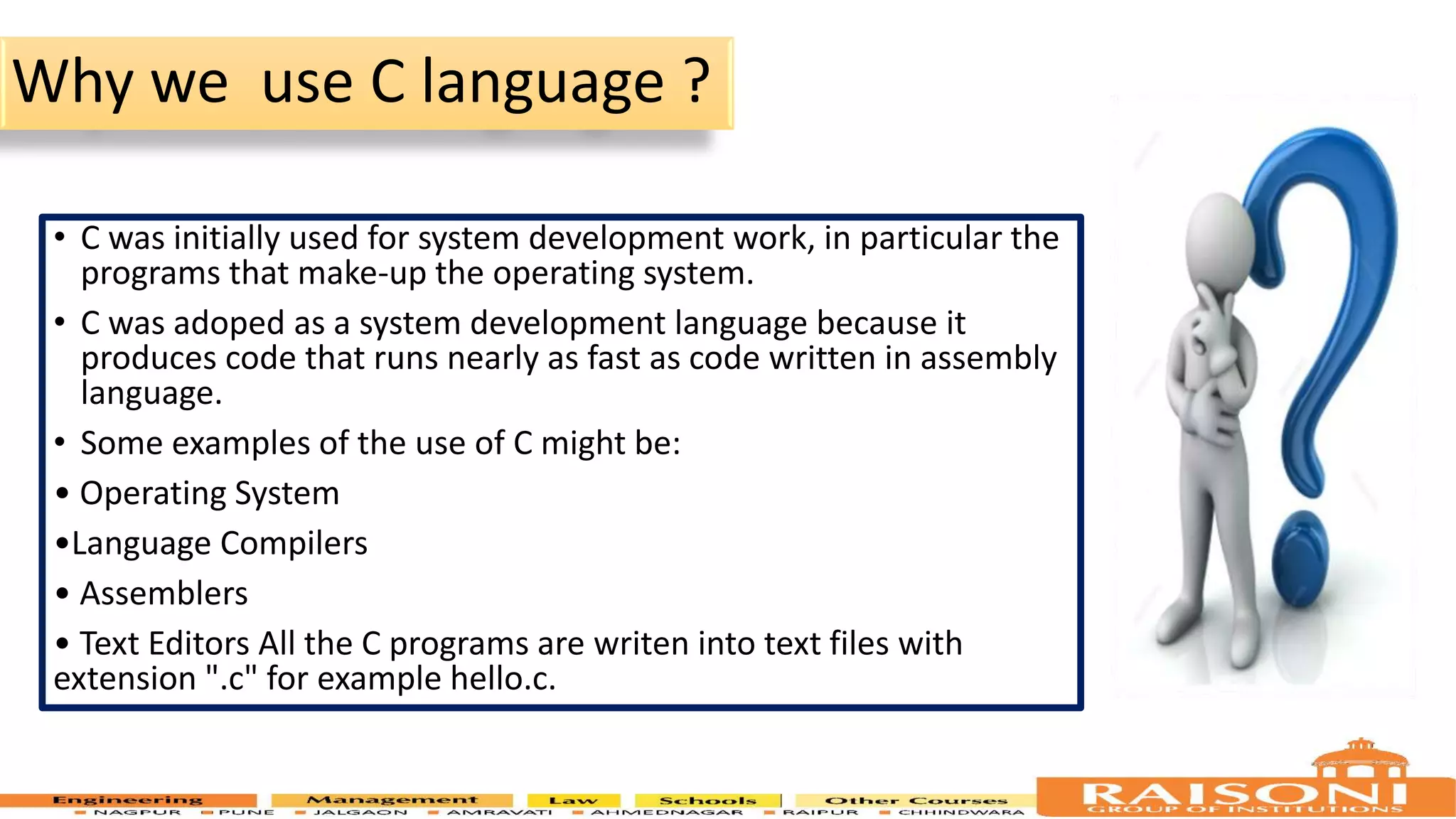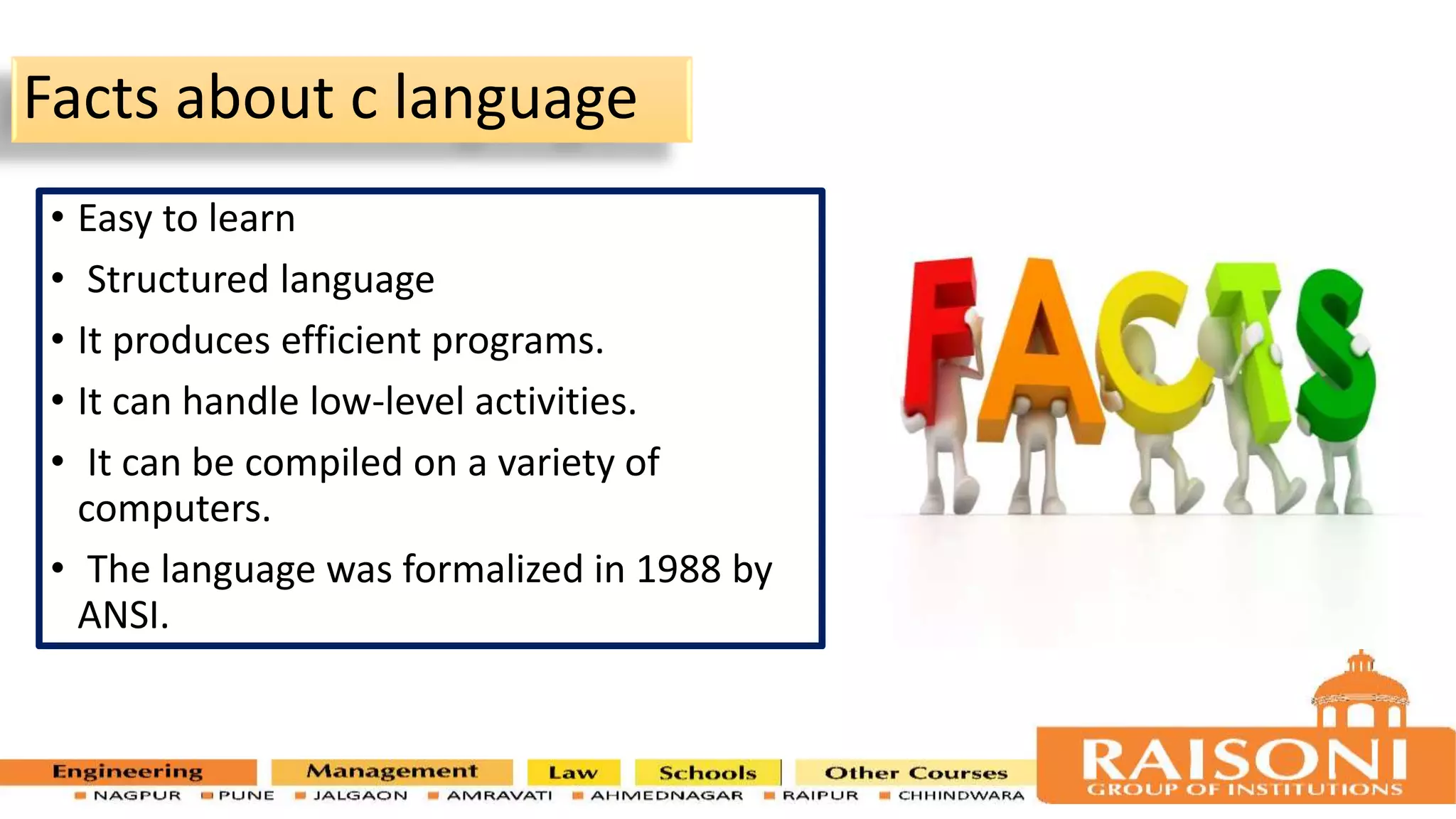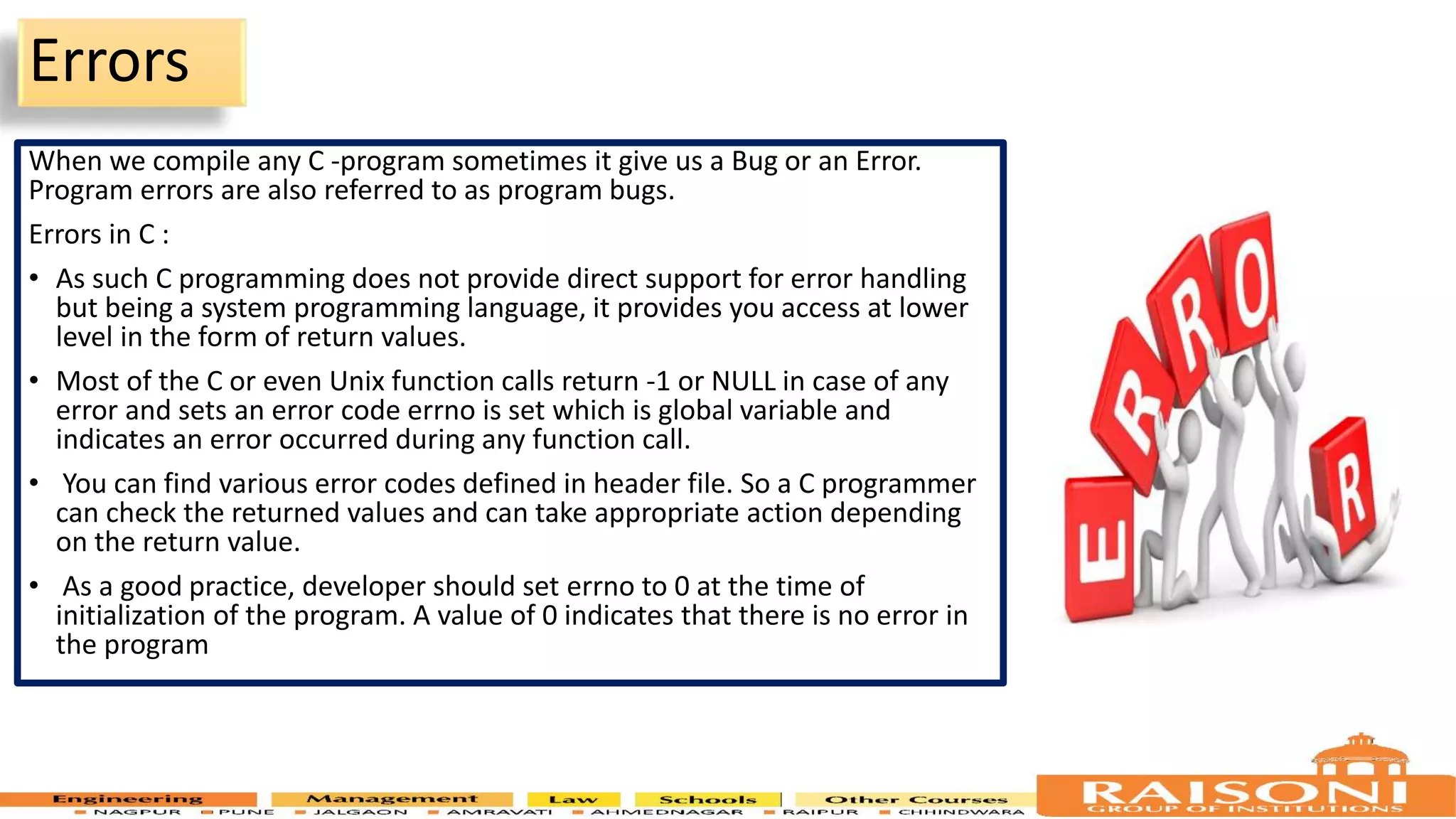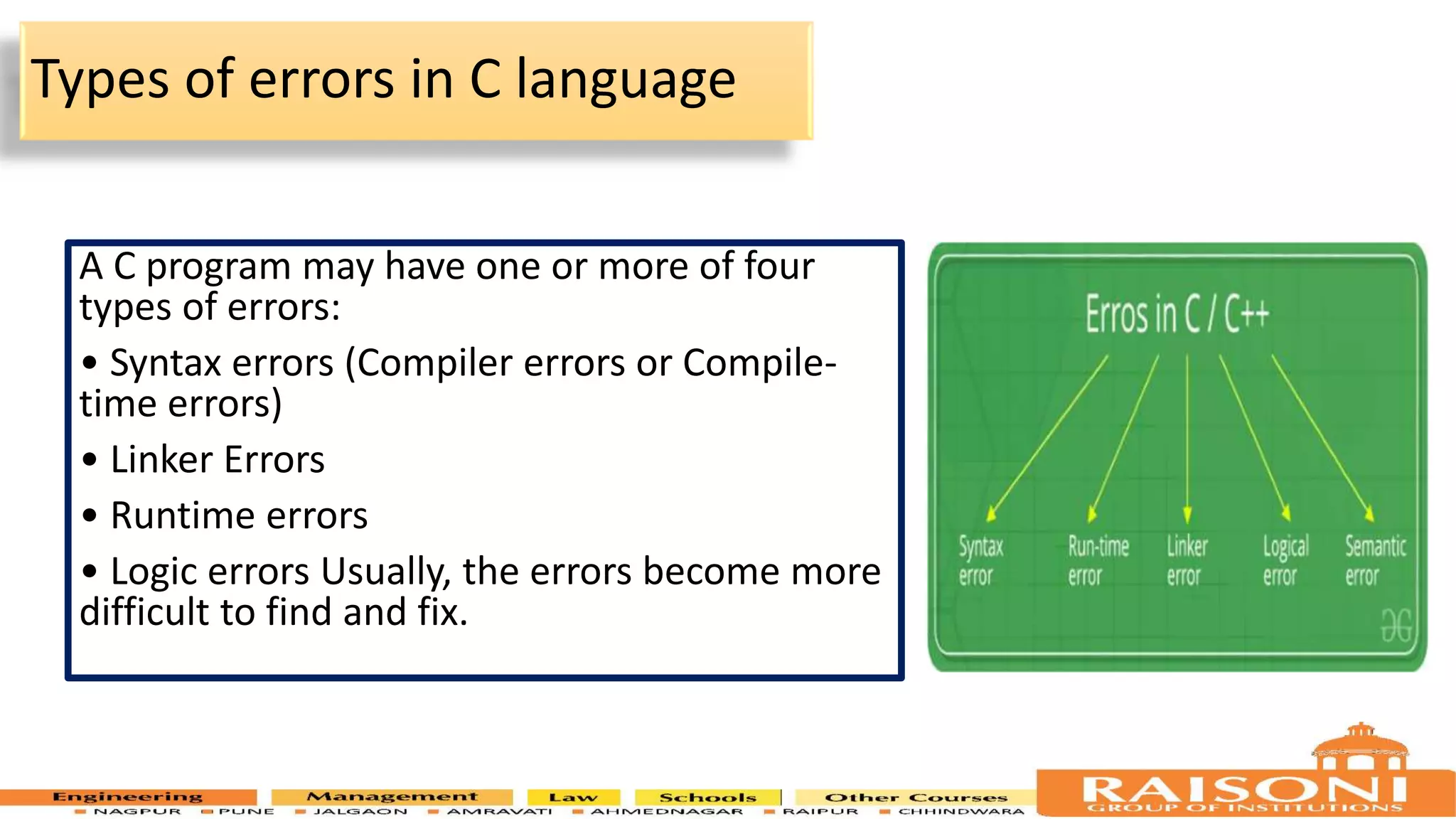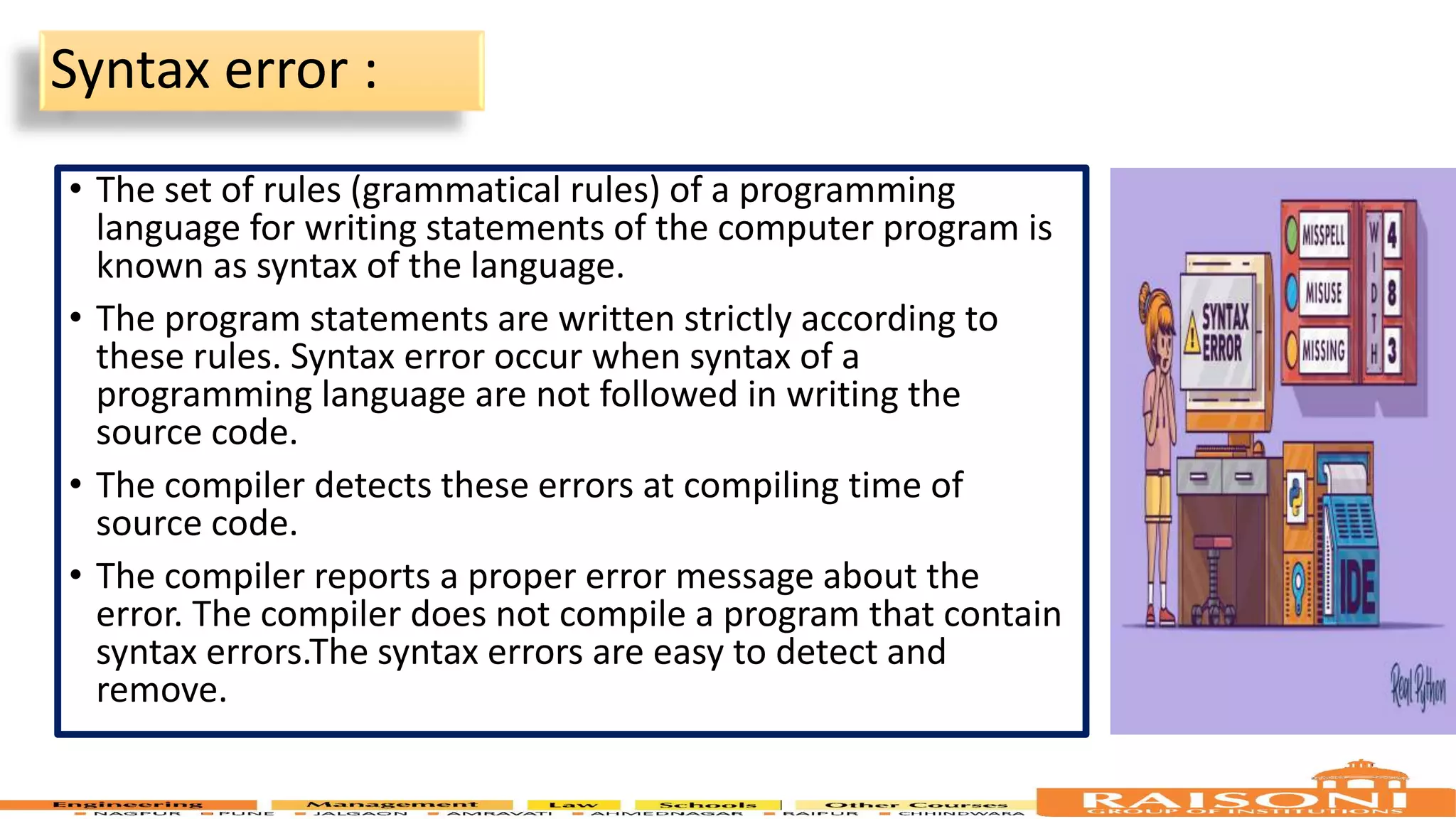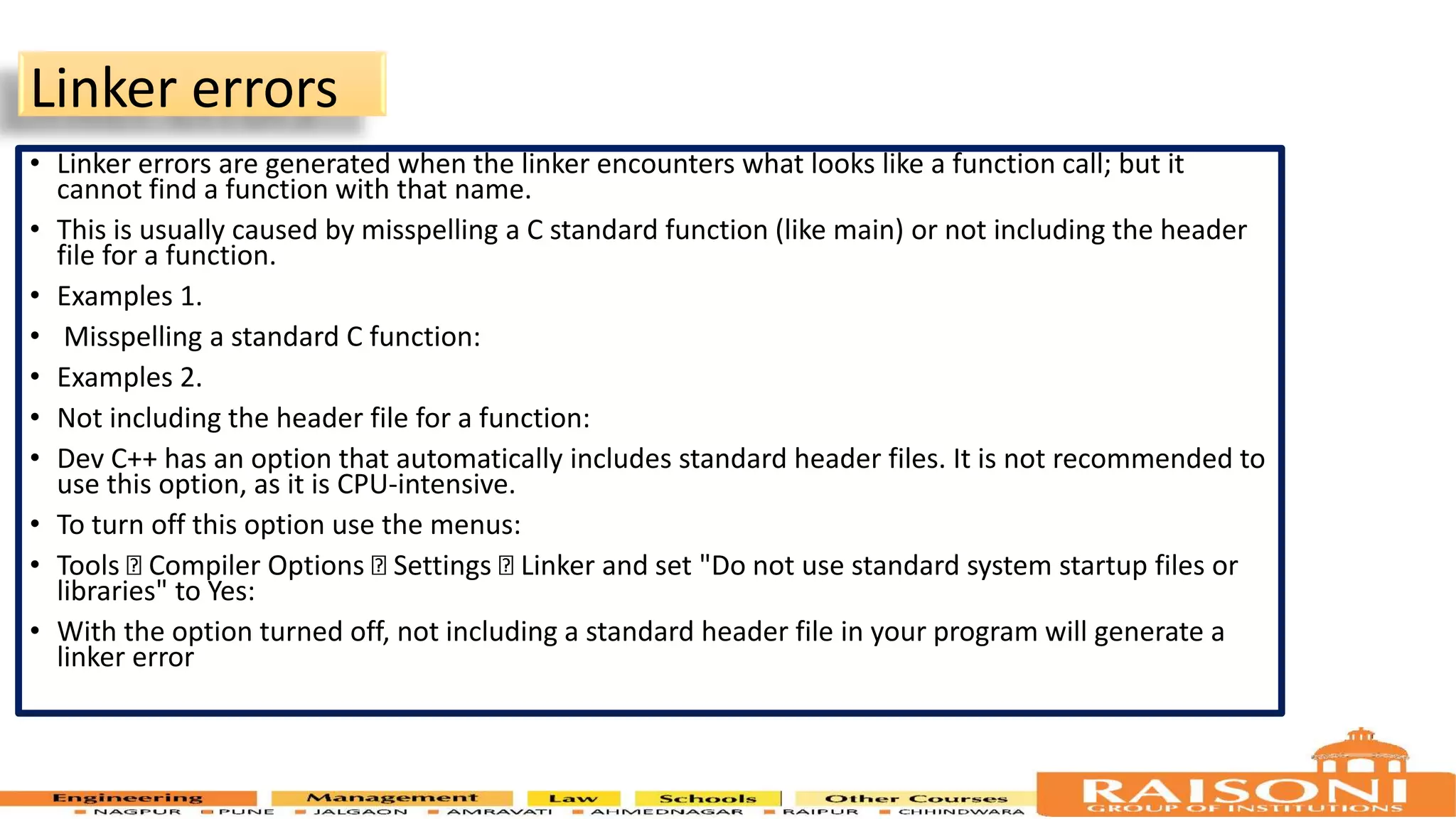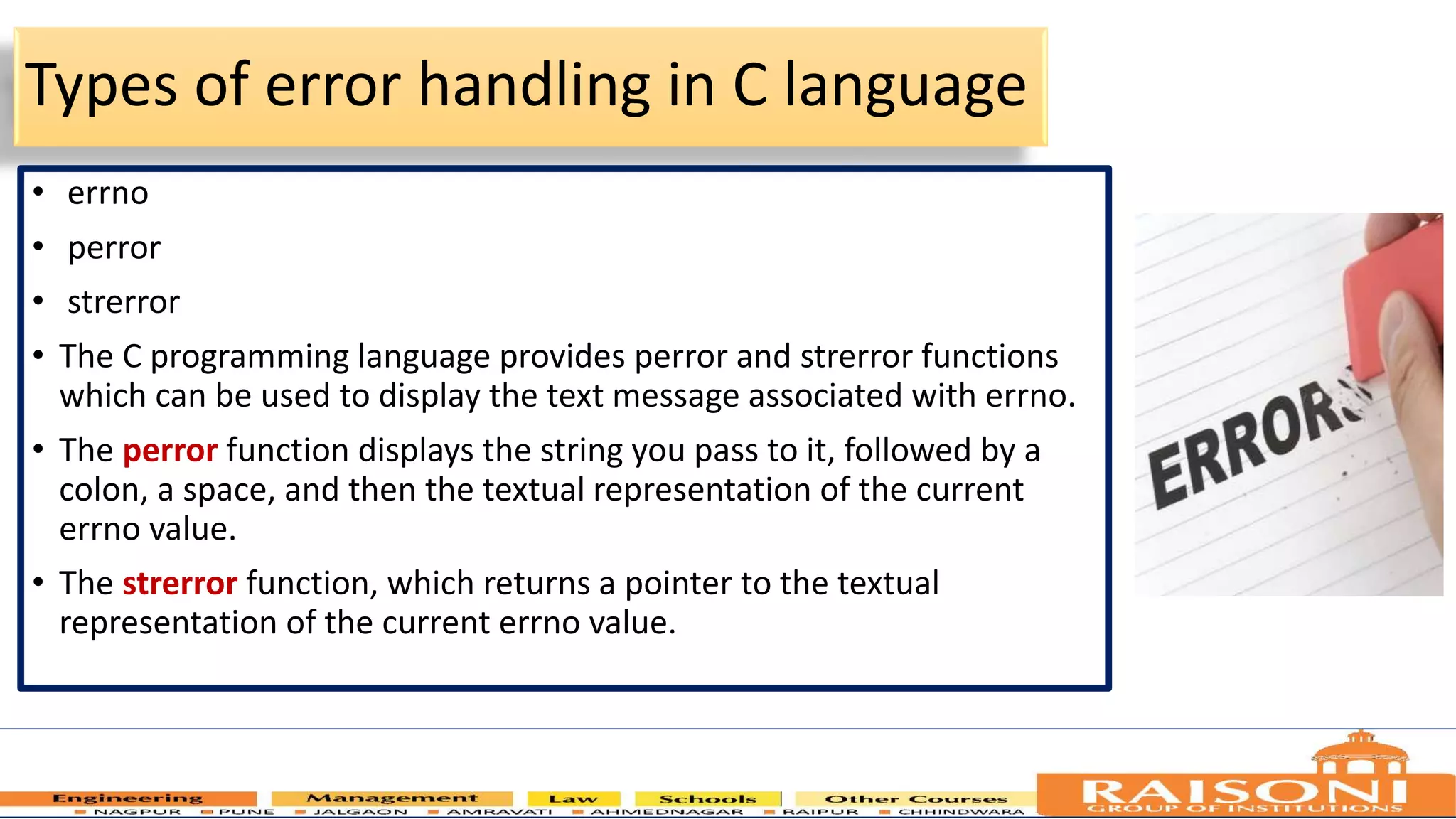This document provides an overview of error handling in C programming. It discusses the different types of errors that can occur in C programs, including syntax errors, linker errors, runtime errors, and logic errors. It then describes some common types of error handling in C using functions like errno, perror, and strerror. These functions allow programmers to check for errors, access error codes, and display textual error messages. The document serves as an introduction to error handling concepts in C language.
